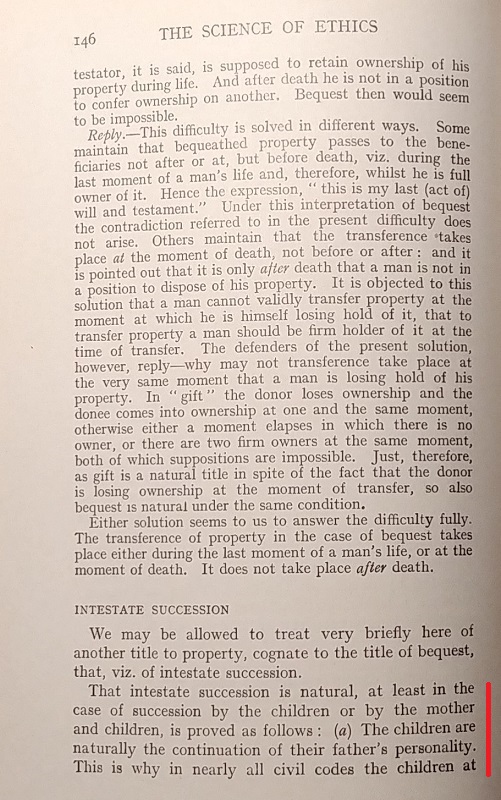1/23 Plato’s Republic on how democratic liberty and equality yield the tyrannical soul (Desmond Lee translation): “[As] oligarchy change[s] into democracy… the rulers, owing their power to wealth as they do, are unwilling to curtail by law the extravagance of the young
2/23 and prevent them from squandering their money and ruining themselves; for it is by loans to such spendthrifts or by buying up their property that they hope to increase their own wealth and influence” (555c)
3/23 “It should then be clear that love of money and adequate self-discipline in its citizens are two things that can’t coexist in any society; one or the other must be neglected” (555 d)
4/23 “The money-makers, bent on their business… continue to inject their poisoned loans wherever they can find a victim, and to demand high rates of interest on the sum lent, with the result that the drones and beggars multiply” (556 a)
5/23 “The oligarchs reduce their subjects to the state we have described, while as for themselves and their dependents – their young men live in luxury and idleness, physical and mental, become idle, and lose their ability to resist pain or pleasure…
6/23 And they themselves care for nothing but making money, and have no greater concern for excellence than the poor” (556 c)
7/23 “The young man’s mind is filled instead by an invasion of pretentious fallacies and opinions… [He] call[s] insolence good breeding, license liberty, extravagance generosity, and shamelessness courage…
8/23 [He] comes to throw off all inhibitions and indulge[s] desires that are unnecessary and useless” (560 c - 561 a). “If anyone tells him that some pleasures, because they spring from good desires, are to be encouraged and approved
9/23 and others, springing from evil desires, to be disciplined and repressed, he won’t listen or open his citadel’s doors to the truth, but shakes his head and says all pleasures are equal and should have equal rights” (561 c)
10/23 “An excessive desire for liberty at the expense of everything else is what undermines democracy and leads to the demand for tyranny” (562 c)
11/23 “Democracy… reserves its approval, in private life as well as public, for rulers who behave like subjects and subjects who behave like rulers. In such a society the principle of liberty is bound to go to extremes” (562 d)
12/23 “It becomes the thing for father & son to change places, the father standing in awe of his son, & the son neither respecting nor fearing his parents, in order to assert what he calls his independence; & there’s no distinction between citizen and alien and foreigner” (562 e)
13/23 “The teacher fears and panders to his pupils… and the young as a whole imitate their elders, argue with them and set themselves up against them,
14/23 while their elders try to avoid the reputation of being disagreeable or strict by aping the young and mixing with them on terms of easy good fellowship” (563 a)
15/23 “The minds of the citizens become so sensitive that the least vestige of restraint is resented as intolerable, till finally, as you know, in their determination to have no master they disregard all laws, written or unwritten…
16/23 This is the root from which tyranny springs” (563 d - e) “From an extreme of liberty one is likely to get, in the individual and in society, a reaction to an extreme of subjection…
17/23 and if that is so, we should expect tyranny to result from democracy, the most savage subjection from an excess of liberty” (564 a)
18/23 “[Citizens] are then accused by their rivals of plotting against the people & being reactionaries and oligarchs, even though in fact they may have no revolutionary intentions… There follow impeachments and trials in which the two parties bring each other to court” (565 b)
19/23 “All the pleasures of a dissolute life… produce… the sting of mania. Then the master passion runs wild and takes madness into its service; any opinions or desires with a decent reputation and any feelings of shame still left are killed or thrown out,
20/23 until all discipline is swept away, and madness usurps its place… A very complete description of the genesis of the tyrannical man. Isn’t this the reason… why the passion of sex has for so long been called a tyrant?” (573 b)
21/23 “Then a precise definition of a tyrannical man is one who, either by birth or habit or both, combines the characteristics of drunkenness, lust, and madness…
22/23 When a master passion within has absolute control of a man’s mind, I suppose life is a round of extravagant feasts and orgies and sex and so on… his large brood of fierce desires will howl aloud, and he will inevitably be stung to madness by them” (573 c - e)
23/23 “Under the tyranny of the master passion he becomes in his waking life what he was once only occasionally in his dreams, and there’s nothing, no taboo, no murder, however terrible, from which he will shrink. His passion tyrannizes over him” (574 e)
• • •
Missing some Tweet in this thread? You can try to
force a refresh










